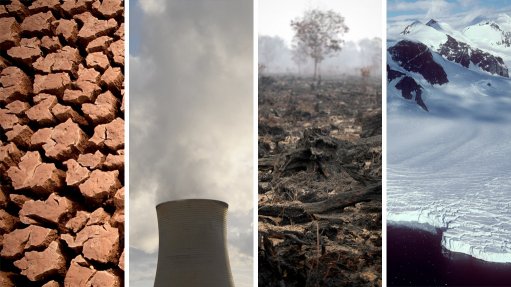
PERTH (miningweekly.com) – Australia’s resources companies would need to do more in order to address downstream scope 3 emissions, despite making progress on moving their operations towards net zero by 2050, a new report has found.
The report by Climateworks Australia and Monash University investigates the climate commitments of Australia’s 22 largest resource companies, with half of the companies having targets for decarbonising operations.
The report noted that diversified miner Glencore was the only company found to have an aspiration to reach net zero across all of its activities, including scope 1, 2 and 3 emissions.
Scope 3 emissions include the downstream use of commodities and products, which typically account for 80 % or more of a company’s total, and Australia’s exports of fossil fuels alone correspond to more than double its domestic emissions.
“Our analysis finds action on scope 3 emissions is emerging among others in our study, with another 18 companies working to reduce scope 3 emissions in some way,” said Amandine Denis-Ryan, head of system change and capability at ClimateWorks Australia.
“Only three companies; Centennial, Newcrest Mining and Whitehaven; had no disclosed scope 3 emissions reduction targets or commitments.”
“Overall our resources sector report found no company has a comprehensive net zero by 2050 target backed with strategies to address their scope 3 emissions,” Denis-Ryan said.
“In some ways this is not a surprise. The companies we assessed are in the hard-to-abate sectors where finding ways to viably transition to a net zero global economy is hugely challenging. That said, we can see a growing number of Australia’s resource companies are acting to decarbonise their operations, and gearing up to provide resources necessary for the global economic net zero transition.”
Denis-Ryan said many companies were investigating how they could diversify their activities into low-carbon products such as green hydrogen made from renewable energy, which she said could become Australia’s largest energy export commodity.
She noted that energy major Shell had expressed interest in producing green hydrogen as a commodity, to be sold either as a zero emissions fuel or industrial feedstock, as had Fortescue Metals and Woodside Petroleum.
“Four out of Australia’s five biggest trading partners now maintain net zero targets, including China, Japan and South Korea. We expect this to drive down demand for emissions-intensive products and create a large global market for new products, such as renewable hydrogen.
“Resource companies can capitalise on the transition and secure their future within a global net zero economy. But very little action is currently being undertaken to reduce the production of high-emissions goods.
“For example, none of the oil and gas companies have targets to reduce their production of fossil fuels. They tend to rely on carbon capture and storage and nature-based solutions to reduce and offset their emissions, which will not be sufficient to achieve the Paris climate goals,” she said.
The report found that much greater movement towards net zero by 2050 for operational emissions. Five companies; BHP, Fortescue, Santos, South32 and Anglo American were assessed as having targets ‘fully aligned’ to the Paris agreement for their scope 1 and 2 operational emissions; a further six were found to have net zero aspirations aligned with the global climate goals.
“We found momentum to address emissions within Australia’s resources sector had significantly accelerated in the past year. Nine of the 11 companies assessed as aligned with net zero by 2050 for their operational emissions made these commitments within the past 12 months. Only BHP and South32 set their net zero targets earlier than that,” Denis-Ryan said.
These commitments correspond to increasing external pressure for companies to manage and disclose climate risks, she added.
Twelve of the 22 companies in the study are being targeted by Climate Action 100+, a coalition of over 500 global investors which adopted net zero as their benchmark in September.
Most of the companies examined are members of peak bodies and collaboration initiatives such as the Oil and Gas Climate Initiative, Australian Industry Energy Transitions Initiative and ResponsibleSteel, which are mobilising companies in the sector to increase their climate ambition, and supporting them in charting pathways towards net zero emissions.